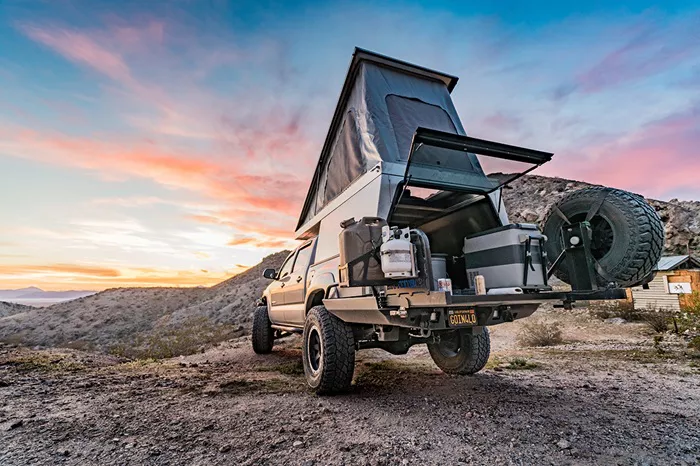Vagabond campers are people who choose to live a nomadic outdoor life. They move from place to place, sleeping in tents, vehicles, or temporary shelters. Unlike traditional campers who go out for short trips, vagabond campers make this their way of life.
These modern-day nomads enjoy freedom above all else. They don’t want to be tied down by rent payments or property ownership. Instead, they prefer waking up to different views and exploring new areas regularly.
Key Characteristics of Vagabond Campers
Mobility and Flexibility
Vagabond campers keep their possessions light and portable. They might use:
- Backpacks for hiking campers
- Bicycles with small trailers
- Cars or vans converted into living spaces
- Small RVs or campers
Their gear is always ready to move. This allows them to change locations quickly when needed.
Simple Living
These campers adopt minimal lifestyles by choice. They typically own fewer than 200 items total. Essentials include:
- Basic cooking equipment
- Weather-appropriate clothing
- Sleeping gear
- First aid supplies
- Maybe a laptop or phone for communication
Self-Sufficiency
Successful vagabond campers develop important survival skills:
- Finding safe places to sleep
- Getting clean water
- Preparing meals outdoors
- Handling medical emergencies
- Managing waste properly
Different Types of Vagabond Campers
Urban Vagabonds
These campers stay near cities where they can:
- Find temporary work
- Access public facilities
- Get supplies easily
- Connect with other travelers
They might sleep in:
- Parks
- Abandoned buildings
- Vehicle parking spots
- Friend’s properties
Wilderness Vagabonds
These campers prefer natural settings like:
- National forests
- BLM (Bureau of Land Management) areas
- Remote beaches
- Mountain regions
They follow “leave no trace” principles strictly to protect the environment.
Vehicle Dwellers
Many modern vagabonds live in:
- Converted vans (“vanlifers”)
- Old school buses (“skoolies”)
- Cars with simple modifications
- Small trailers
Vehicles provide more protection from weather and security for belongings.
The Appeal of Vagabond Camping
Financial Freedom
Without rent or mortgage payments, vagabonds can live on very little money. Many report monthly expenses between 300−800.
Connection with Nature
Living outdoors creates constant awareness of:
- Weather patterns
- Plant life
- Animal behavior
- Natural cycles
Personal Growth
The lifestyle teaches:
- Problem-solving skills
- Adaptability
- Self-reliance
- Appreciation for simple things
Challenges of Vagabond Camping
Legal Issues
Laws vary by location regarding:
- Overnight parking
- Public camping
- Loitering
- Trespassing
Vagabonds must research local regulations constantly.
Safety Concerns
Risks include:
- Theft
- Animal encounters
- Severe weather
- Health emergencies
- Dangerous people
Social Stigma
Some people view vagabond campers as:
- Homeless
- Lazy
- Irresponsible
- Dangerous
This can lead to discrimination or harassment.
Essential Gear for Vagabond Camping
Shelter Options
- Tents: Lightweight for hikers, heavier for base camps
- Hammocks: With rain flies and insulation
- Bivy Sacks: Minimal weather protection
- Vehicle Setups: From simple car beds to elaborate van builds
Cooking Systems
- Portable stoves (propane, alcohol, or wood)
- Mess kits with pots and utensils
- Coolers or portable fridges
- Water filtration devices
Power Solutions
- Solar panels
- Portable battery banks
- Car charging systems
- Hand-crank devices
Finding Places to Camp
Public Lands
In the U.S., these include:
- National Forests (often allow dispersed camping)
- BLM land (similar rules to National Forests)
- Some state parks
- Wildlife management areas
Private Land Options
- Campgrounds (paid)
- RV parks
- Farms (through programs like WWOOF)
- Friend’s properties
Urban Alternatives
- Truck stops
- 24-hour stores
- Churches (sometimes allow overnight parking)
- Casinos (often permit overnight stays)
Managing Basic Needs
Water Sources
- Public spigots
- Natural sources (with proper filtration)
- Gas stations
- Community centers
- Purchased bottled water
Hygiene Solutions
- Gym memberships for showers
- Public restrooms
- Solar showers
- Sponge baths
- River/lake bathing (where permitted)
Waste Management
- Proper disposal of human waste (cat holes or bags)
- Packing out trash
- Using public restrooms when available
- Responsible gray water disposal
Making Money on the Road
Seasonal Work
- National park jobs
- Harvest work
- Ski resort positions
- Summer camp staffing
Remote Work
- Online freelancing
- Virtual assistance
- Web design
- Writing/editing
- Customer service
Odd Jobs
- House sitting
- Pet sitting
- Handyman services
- Selling crafts
Community and Culture
Gatherings and Events
- Rubber Tramp Rendezvous (for vehicle dwellers)
- Hiker meetups (like for Appalachian Trail thru-hikers)
- Vanlife
Conclusion
Vagabond camping is a lifestyle that offers an extraordinary blend of freedom, connection with nature, and personal growth, allowing individuals to break free from traditional living constraints and embrace a nomadic existence. While it presents unique opportunities for financial liberation and a deep immersion in the outdoors, it also comes with its fair share of challenges, including legal uncertainties, safety risks, and social stigma. Despite these obstacles, the tight – knit community and the allure of constantly exploring new horizons continue to draw adventurers to this way of life, proving that for those with a spirit of wanderlust and resilience, vagabond camping can be a richly rewarding and transformative experience.
Related topics:
Is Owning a Campervan Worth It?
What Are the Best Small Camper Vans?
What Is the Best Pull-Behind Camper?

